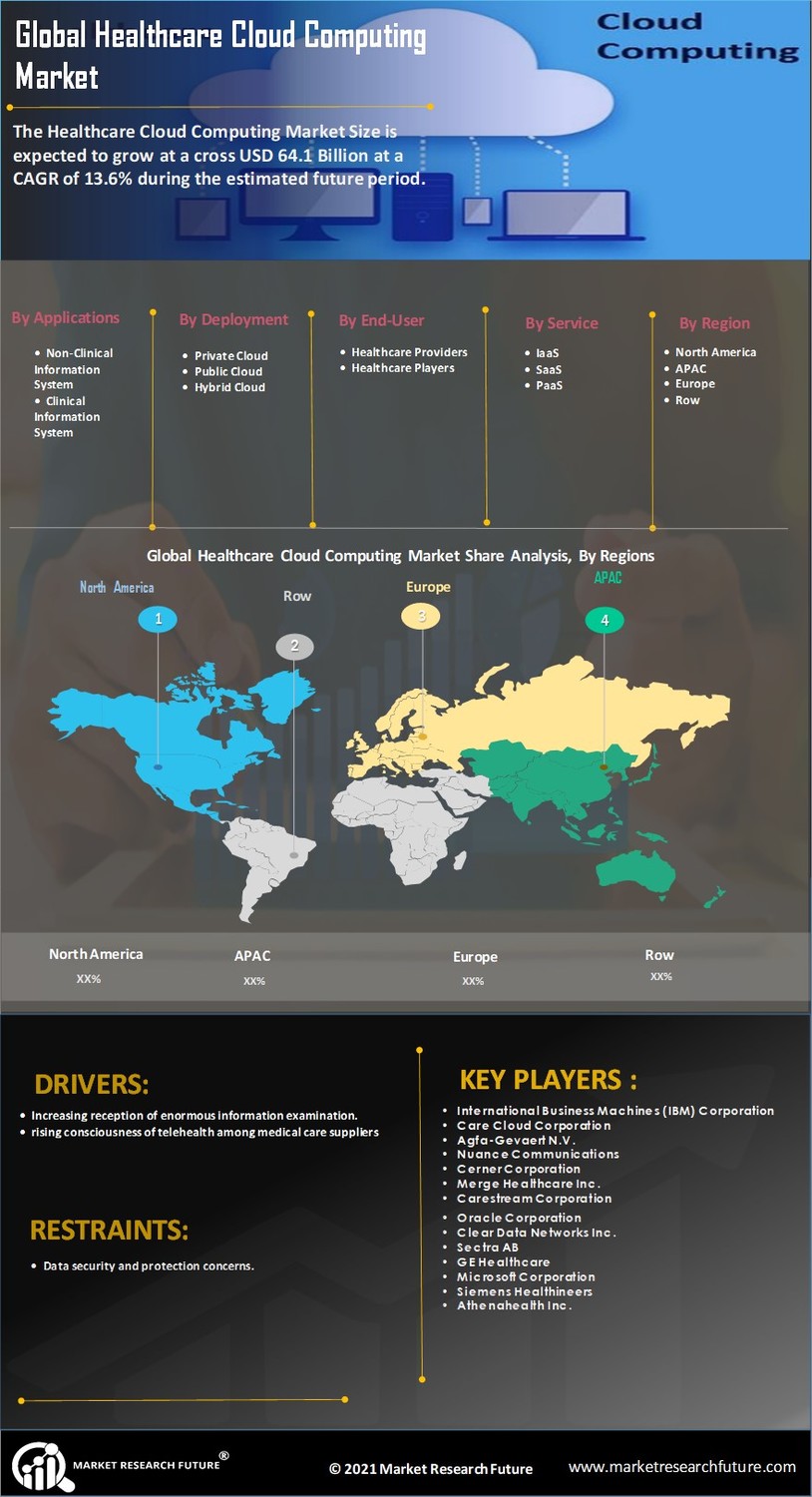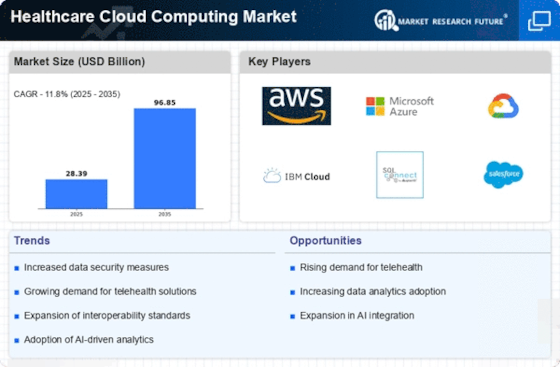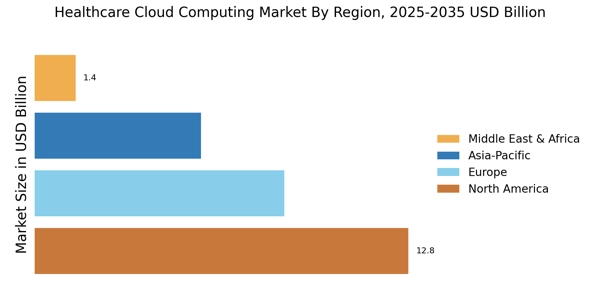Cost Efficiency and Scalability
Cost efficiency remains a pivotal driver in the Healthcare Cloud Computing Market. Healthcare organizations are increasingly recognizing the financial benefits of cloud solutions, which eliminate the need for extensive on-premises infrastructure. By leveraging cloud computing, institutions can reduce operational costs while ensuring scalability to meet fluctuating demands. Reports indicate that healthcare organizations can save up to 30% on IT expenditures by migrating to cloud-based systems. This financial incentive, coupled with the ability to scale resources as needed, positions cloud computing as an attractive option for healthcare providers aiming to optimize their operations and enhance service delivery.
Integration of Advanced Technologies
The integration of advanced technologies is a key driver in the Healthcare Cloud Computing Market. Innovations such as artificial intelligence, machine learning, and big data analytics are increasingly being incorporated into cloud solutions, enhancing their functionality and effectiveness. These technologies enable healthcare providers to analyze vast amounts of data, derive actionable insights, and improve decision-making processes. The market for AI in healthcare is projected to reach substantial figures in the coming years, indicating a strong trend towards leveraging technology to enhance patient care. As healthcare organizations recognize the potential of these advanced technologies, the adoption of cloud computing solutions is expected to accelerate, further transforming the healthcare landscape.
Enhanced Collaboration and Data Sharing
The Healthcare Cloud Computing Market is significantly influenced by the need for enhanced collaboration and data sharing among healthcare stakeholders. Cloud platforms facilitate seamless communication between providers, patients, and payers, fostering a more integrated approach to care. This collaborative environment is essential for improving care coordination and ensuring that all parties have access to up-to-date patient information. As a result, healthcare organizations are increasingly adopting cloud solutions to break down data silos and promote interoperability. The ability to share data securely and efficiently is expected to drive the adoption of cloud computing solutions, thereby enhancing overall healthcare delivery.
Regulatory Compliance and Data Security
Regulatory compliance and data security are paramount concerns within the Healthcare Cloud Computing Market. As healthcare organizations transition to cloud-based solutions, they must navigate complex regulations governing patient data protection. Cloud providers are increasingly offering solutions that comply with stringent regulations, such as HIPAA, ensuring that sensitive patient information is safeguarded. The emphasis on data security is likely to drive the adoption of cloud computing, as organizations seek to mitigate risks associated with data breaches. Furthermore, the market is witnessing a rise in demand for cloud solutions that incorporate advanced security features, indicating a growing awareness of the importance of protecting patient data.
Rising Demand for Remote Patient Monitoring
The Healthcare Cloud Computing Market is experiencing a notable surge in demand for remote patient monitoring solutions. This trend is driven by the increasing prevalence of chronic diseases and the need for continuous patient engagement. As healthcare providers seek to enhance patient outcomes, cloud-based platforms facilitate real-time data collection and analysis, enabling timely interventions. According to recent estimates, the remote patient monitoring segment is projected to grow at a compound annual growth rate of over 25% in the coming years. This growth underscores the critical role of cloud computing in supporting healthcare providers in delivering efficient and effective care, thereby transforming the patient experience.


















